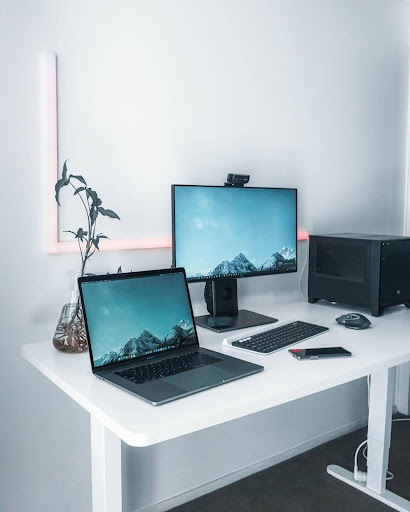Buying a new computer can be quite stressful, as it’s a big investment for a lot of people, and there may be a lot of terms and technologies you’re unfamiliar with. When you buy a computer, you want to make sure it’s suitable for your needs while also avoiding overspending on features that you don’t need. At the same time, it’s critical to make sure that the technology you buy today isn’t going to become obsolete in a few years.
Naturally, there’s a lot of confusion over buying computers, and even if you use a trusted site such as PC International, it can be a bit daunting. In this article, we’ll outline the most important things that you should consider when looking at new computers, so you can be confident in your final purchase.
Your Specific Needs
There are loads of different types of computers out there, and what might be ideal for one person won’t be suitable for another. That’s because different people have different needs, and it’s important to think about your personal needs before you make a decision.
What exactly do you need your computer for? Are you going to be using it to work from your home office, create spreadsheets, and attend Zoom meetings? Do you need to use it for editing photos and videos? Or maybe you travel around a lot and need to have a device that you can take with you. Some people want a computer simply to play games on.
Whatever your needs are, they’ll have an impact on your choice of computer, and working them out will allow you to narrow your search.
Your Budget
Aside from thinking about what you need to use your computer for, you should also consider how much you’d be willing to spend. There are a lot of things that will affect your budget, including your personal financial situation and the necessity of your purchase. For example, if you use your computer for work, it’s much easier to allocate a larger budget, especially if you can claim back taxes or even get money off.
The budget will have a big impact on the capabilities of the PC you’re able to buy. Lower-cost machines generally mean lower capabilities. If your computer needs to be able to carry out data-intensive processes, it needs to be more powerful and likely more expensive.
Hardware
Computer hardware includes things like graphics cards, hard drives, memory, and processors, which are all required to help your device function. Depending on your needs, some hardware may be more important than others. For example, if you’re using your computer to game, you may need a powerful graphics card which wouldn’t be necessary if you’re just using it for work.
Of course, you’ll also need certain peripherals such as monitors, keyboards, and mice if you’re buying a desktop computer. If you’re buying a laptop or tablet, these devices aren’t always necessary, so you can increase mobility and lower costs.
Software
Your computer needs software to run essential programs and fulfill the tasks you need it for. Most PCs come with certain software already installed, but you may need specialized software to perform specific tasks. If you’re video editing, for example, there are lots of different programs you can purchase to help you get the most out of your footage.
Upgrading Your Computer
Technology moves fast, and within a few years, your device could be out of date For those that enjoy gaming or running data-intensive programs, being able to upgrade your PC is important. You can add more RAM, new graphics cards and make other changes over time to ensure that you don’t get left behind by technology.
